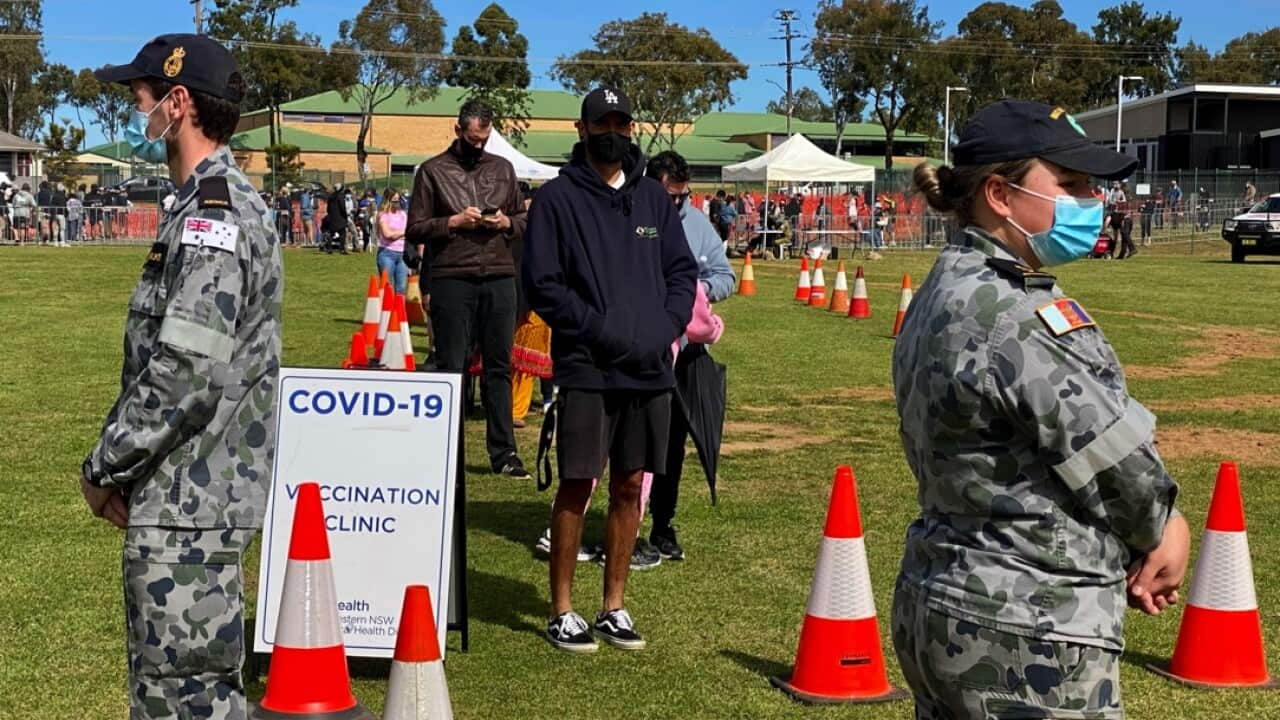Western Australia has the lowest rate of vaccinations for Indigenous people at just eight percent which is more than half when compared to the national average.
As coronavirus cases in New South Wales reached a record milestone - more than 1000 - on the other side of the country concerns are growing the virus could jump across the border.
More than 500 First Nations people now have the virus in Greater Sydney and regional and remote Far Western NSW, including dozens of children. Large numbers are filling the state's hospital wards.
NSW outbreak causing 'huge' concern
Seeing images of the outbreak in Wilcannia, Dubbo and other communities is leading to more vaccine interest, according to Yura Yungi Medical Service's Brenda Garstone.
She is concerned as the virus spreads from Sydney to regional and remote New South Wales and across borders into Victoria and the ACT - it could soon hit the community.
"I feel that we are running out of time, and it's only a matter of time (until) we are going to get coronavirus in Halls Creek."
She said the vaccination rate was about double the state average but even that is not enough to protect the community.
"I'm imagining it could be here by Christmas or before Christmas so, it is race against time," Ms Garstone told NITV News.
The clinic has been vaccinating since March with 281 First Nations people receiving one dose of the vaccine and 81 people now fully vaccinated against the virus.
"But if coronavirus came today, that is not enough to protect our community," she said.
Incentives, vouchers to encourage vaccinations
In Halls Creek fierce efforts are underway to protect the community, including offering incentives such as food vouchers, utilising mobile clinics and reaching out directly to the community.
Ms Garstone said there is still a lot of hesitancy in the community about the vaccine in some members of the community but urged people to listen to the health teams,
"There's a lot of social media information giving incorrect messaging around the vaccine and people are getting confused with religious beliefs and practices."
APY Lands fear virus 'border creep'
In South Australia, there are also fears the virus could spread among the unvaccinated as hesitancy continues to cause concern.
"The Indigenous population are just as confused as the rest of the population — I think it's been a bumbled rollout from the beginning," Nganampa Health Council's vaccination coordinator Adrienne Storken told NITV news. The clinic has fully vaccinated more than 65 per cent of its vulnerable over 50s, which is higher than the state average. However younger people are becoming more reluctant, and are refusing vaccines.
The clinic has fully vaccinated more than 65 per cent of its vulnerable over 50s, which is higher than the state average. However younger people are becoming more reluctant, and are refusing vaccines.

APY Lands health clinics fear COVID-19 could hit their community hard with many residents having chronic health conditions which could make them vulnerable. (Supplied: Nganampa Health Council)
"We're almost certain that COVID will come to the APY Lands it's just a matter of when and it's hugely concerning seeing it spread," Ms Storken told NITV news.
She's extremely concerned about the virus's spread through regional and remote NSW with low uptake among younger community members.
"Only about 20% of those under 50 have had two and we've now got a lot of people refusing the second dose."
TikToc, conspiracy theories causing fear in communities
Ms Storken said social media platforms such as TikTok, Instagram and other social media sites is spreading misinformation and conspiracy theories.
"Unfortunately people are getting their news from Tik Tok, and Facebook. We're hearing a lot of myths and all sorts of conspiracy theories which have spread."
"We're hearing myths like there's a microchip in the vaccine, that the second vaccine will kill you..." She said many of the Aṉangu community aren't accessing traditional news and health information but the clinic is working closely with elders and trusted community leaders to encourage uptake of the vaccine.
She said many of the Aṉangu community aren't accessing traditional news and health information but the clinic is working closely with elders and trusted community leaders to encourage uptake of the vaccine.

APY Lands COVID-19 vaccination team has fully vaccinated 65 percent of their over 50s clients but are struggling with vaccine hesitancy.(Supplied: Nganampa Health Council)
"We've developed a little videos from key community members, church leaders, people who are well known to the community and we're showing them in our clinic and on our phones when we go out to communities."










